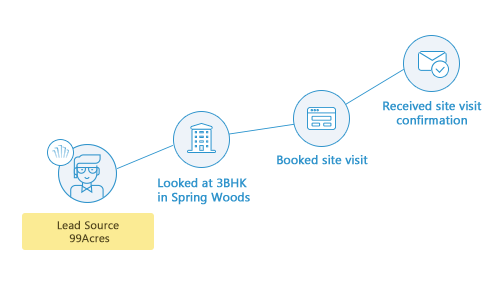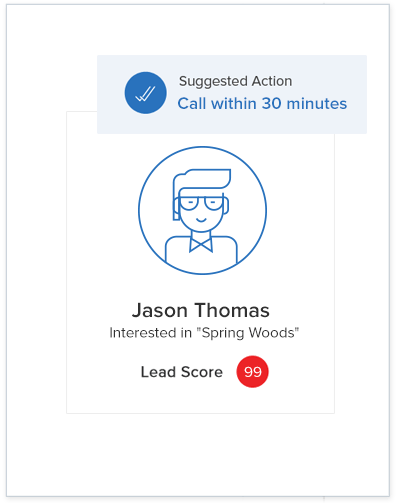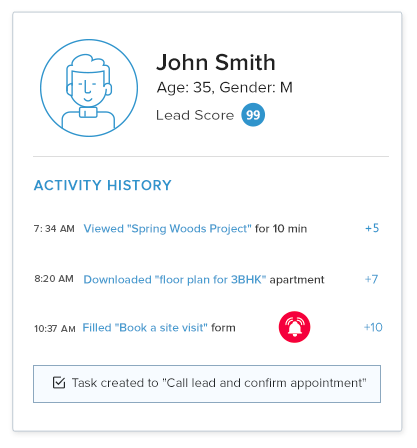Real estate is a business that thrives on strong relationships with buyers and sellers. A level of trust is required to effectively operate within the real estate sector, and knowing everything there is to know about your clients – and being able to act on it – is one of the driving forces that allows you to build a truly successful real estate business. That’s why you need a real estate CRM.

But how do you keep on top of your relationships with your clients? When you only have one or two, it is quite simple to remember their needs, wants, and desires. If you have a client portfolio or 10, 20, 50, or 100 different individuals, how can you hope to manage it?
And what if you have even more clients than that?
Why do you need a real estate CRM
Using a CRM can be beneficial in many businesses, and real estate is no exception. A CRM is Customer Relationship Manager – it looks after all the information that is relevant to your relationship with your customer.
This can begin as something simple, such as their name and contact details, but will quickly build up into a useful reference tool that you can access every time you interact with them.
By using a CRM to remember the information about every customer you have, you don’t need to keep it in your head. This not only frees up your mind for other tasks but also allows a sales team to work together effectively by sharing information and letting any team member deal with a query.

What can be stored in a Real Estate CRM?
Any information that you desire. If you are working with a buyer, you can keep the requirements for the type of real estate they are interested in purchasing. If you are working for a seller, you can keep details or the real estate they want to sell, how much they want to get for it, any special conditions, and so on.
With comprehensive search facilities, you’ll be able to match any real estate you come across with your clients and see if it is a good match. If you’re looking to make easy sales, it’s the way to go!
Building a relationship with a CRM
Real estate sales and purchases involve transferring large amounts of cash from one party to another, and any prospective buyer or seller will want to be comfortable working with you. If you serve their needs well (by keeping their information in your CRM and acting on it) you’ll be able to build a better relationship than just by leaving it to chance.

Any time you are in contact with a customer, you can update your records to keep any information that will be useful in your future interactions. Keeping paper records in filing cabinets was great once upon a time and using sticky notes to pass on information might work in certain situations, but for a thoroughly modern and professional approach, a real estate CRM is a must-have.
Using an instant-access digital system also reduces waiting time for both customers and employees, so the number of awkward silences on phone conversations is minimized. Wouldn’t you rather effectively serve your customers?
Your customers will certainly appreciate the highest level of service they can get from you.
Real Estate CRM provides true insights
Anyone looking to buy or sell anything these days will make the internet their first port of call. Using a real estate CRM that is integrated with your website will reap benefits beyond just collecting contact details.

If a visitor requests information on a particular building, or browses through a particular style of real estate, the system can automatically begin to build a profile of them. Once you know what their preferences and requirements are, you’ll be able to find other buildings they may be interested in and propose them as options.
In fact, your integrated website and CRM can custom build emails to send out to individual clients, and so can make recommendations without you even having to raise a finger.
Qualifying sales with Real Estate CRM
To sell real estate several things need to be in place before the process completes. For example, the appropriate legal paperwork, the funds to buy, etc. You can use your CRM to record the position of each customer you work with, so if someone is ready to buy, your CRM will be able to pick them out.

You can concentrate on working with these clients and satisfying their needs, which will result in a quicker sale than working with those people who are not yet ready to buy or sell.
Automating sales tasks easily
As you have seen, your CRM can automatically send emails to interested parties and identify the people who are ready to buy or sell – but that’s not all it can do.
The bane of many salespeople’s lives is producing reports and sending them in on time. Managers can now receive automated reports that include sales figures with the option of splitting the figures across multiple criteria.

Interested in which area has better sales? Or what kind of building generates the most interest? What about which member of your team closed the most sales?
The automated system built into your real estate CRM will provide all of this, and more too.
Managing your business
It’s clear that happy customers are more likely to work with you and serving their needs well will increase the happiness of all your customers. Knowing what they want and working within those parameters will give the best results, and the most effective way to do this is by using a modern CRM that allows your entire sales team to access the data, as well as incorporating automation features that make it easier for your business to grow.
When your business is trying to reach the next level but you’re not sure how to get there, you simply need to serve your customers better. Using a real estate CRM is the most straightforward way to achieve this.








